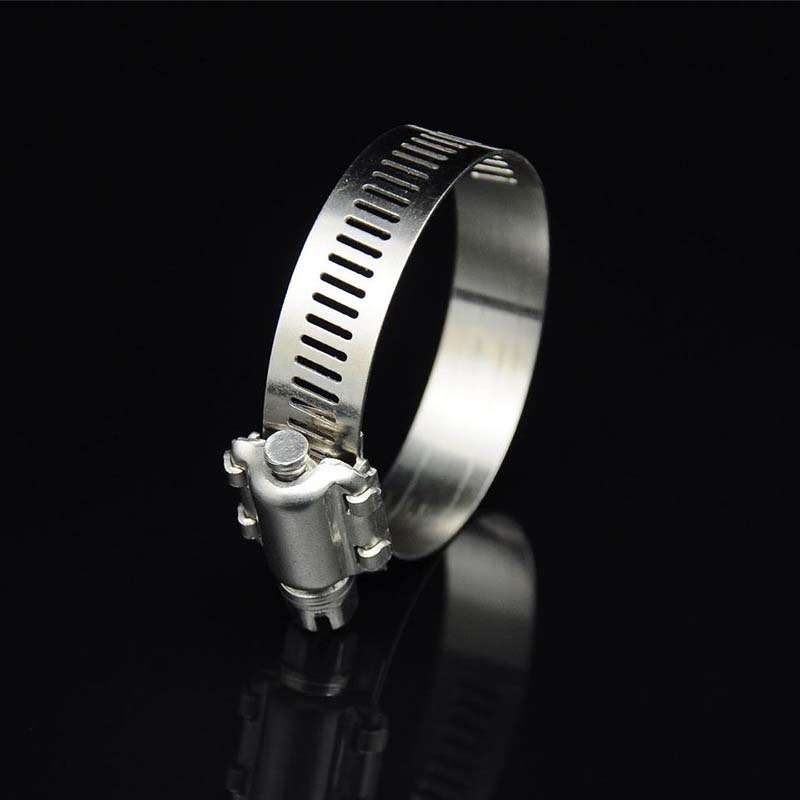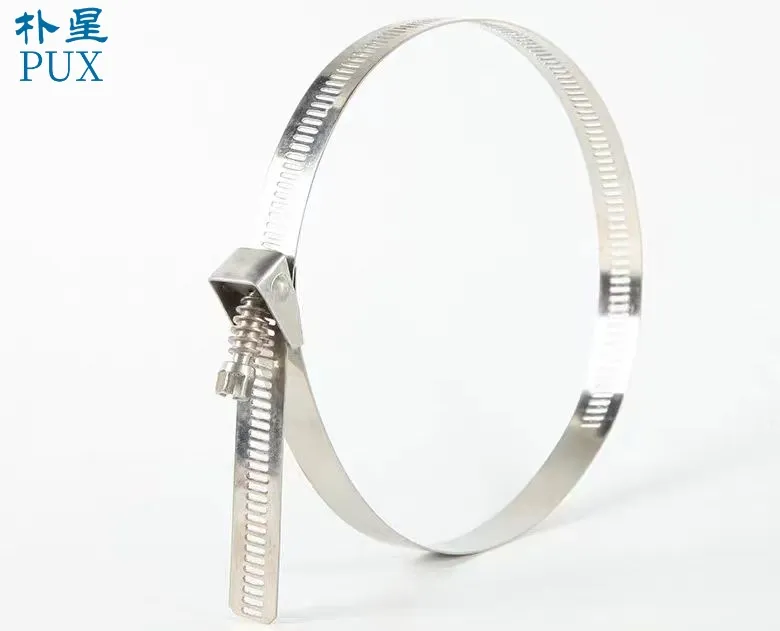- Phone:+86-17331948172 +86-0319-8862898
- E-mail: inquiry@puxingclamp.com
lip . 02, 2025 15:14 Back to list
Cold Rolled Stainless Steel Band Suppliers & Factories Precision Quality
- Technical advantages of cold rolled stainless steel band
s - Critical manufacturing processes defined
- Leading cold rolled stainless steel band factories compared
- Advanced customization solutions
- Industry application case studies
- Emerging material innovations
- Strategic selection of cold rolled stainless steel band suppliers

(cold rolled stainless steel band)
The Engineering Superiority of Cold Rolled Stainless Steel Bands
Precision cold rolling transforms stainless steel coils into high-performance bands with distinct advantages:
Material Integrity: Cold reduction rates of 50-80% dramatically increase tensile strength – ASTM A666 cold rolled bands achieve 150,000-200,000 PSI compared to 75,000 PSI in hot-rolled equivalents. This work hardening effect enhances structural integrity without compromising ductility.
Precision Tolerances: Maintaining ±0.001" thickness consistency across production runs enables seamless integration into automated assembly systems. The ultra-smooth surface finish (typically 8-10 µin Ra) reduces friction in high-velocity applications.
Performance Metrics:
- Corrosion resistance exceeds 1,000 hours in salt spray tests
- Temperature resilience from -100°F to 1,400°F
- Reduced waste during fabrication (5-7% vs. 12-15% for hot-rolled)
Precision Manufacturing Processes Demystified
Production excellence requires integrated technologies:
Rolling Mill Configuration: Modern 20-high Sendzimir mills apply controlled compression through back-up rolls and intermediate cassettes, capable of processing alloys up to 62 HRC hardness. Advanced shape control systems maintain flatness within 1 I-unit across 60" widths.
Surface Refinement: Electrolytic polishing achieves Ra 0.1µm mirror finishes for medical applications, while specialized brushing creates directional grain patterns enhancing aesthetic consistency. Laser cleaning systems remove microscopic impurities before annealing.
Quality Validation: Eddy current testing identifies sub-surface flaws down to 0.003", while spectrometers verify alloy composition within 0.01% accuracy. Continuous monitoring during stress-relief annealing (750°-1100°F) ensures uniform mechanical properties.
Global Supplier Capability Comparison
| Manufacturer | Production Capacity (tons/month) | Thickness Range (inches) | Certifications | Lead Time (weeks) |
|---|---|---|---|---|
| Precision Strip Ltd. | 15,000 | 0.001-0.125 | AS9100, ISO 13485 | 2-4 |
| Ulbrich Stainless | 22,000 | 0.0005-0.187 | ITAR, NADCAP | 3-6 |
| ArcelorMittal Precision | 40,000 | 0.002-0.250 | ISO/TS 16949 | 4-8 |
| Thyssenkrupp Materials | 28,500 | 0.0015-0.156 | ISO 14001, PED | 3-5 |
Supply chain analysis reveals European factories typically maintain ±0.0002" thickness consistency while Asian suppliers offer 15-20% cost advantages on 300-series bands exceeding 5-ton orders.
Custom Engineering Solutions
Leading manufacturers implement client-driven adaptations:
Specialized Alloys: Duplex 2205 cold rolled bands deliver pitting resistance equivalence number >40 for offshore applications. Custom precipitation-hardening grades achieve 195,000 PSI yield strength post-aging treatment.
Precision Processing: Profile rolling creates edge configurations including:
- Trapezoidal grooves for aerospace seals
- Stepped thickness transitions (±0.0005" accuracy)
- Precision perforations to 0.005" diameter
Thermal Engineering: Controlled atmosphere annealing prevents surface oxidation while enabling:
- Custom hardness gradients across strip width
- Differential thermal expansion coefficients
- Stress-modified grain structures for spring applications
Industry Application Case Studies
Automotive Fuel Systems: Cold rolled 316L bands (0.015" thickness) enabled direct replacement of plated carbon steel in fuel rails, reducing:
- Permeation rates by 68%
- Component weight 22%
- Assembly time 30%
Semiconductor Manufacturing: Electro-polished 304 bands with <0.02µg/cm² surface contamination maintain:
- Class 10 cleanroom compatibility
- Non-magnetic properties <1.01 µ
- Elastic recovery >98% for wafer handling
Emerging Material Technologies
Advanced Coatings: PVD-applied chromium nitride layers reduce galling by 90% while maintaining corrosion resistance. Nano-coatings under development promise friction coefficients below 0.1 without lubricants.
AI-Driven Production: Neural networks analyze 15,000 data points per ton during rolling to:
- Predict hardness variation within ±3 HB
- Reduce dimensional outliers by 47%
- Optimize annealing parameters dynamically
Sustainability Innovations: Closed-loop rolling oils reduce consumption by 70%, while hydrogen annealing technology cuts CO² emissions by 28 tons per 10,000 tons processed compared to conventional methods.
Partnering with Reliable Cold Rolled Stainless Steel Band Suppliers
Strategic supplier evaluation requires thorough assessment:
Technical Validation:
- Mill test reports with traceable heat numbers
- Process capability indices (Cpk >1.67 for critical dimensions)
- Material certifications including mill-specific RMAs
Supply Chain Resilience:
- Minimum 6-month strategic alloy reserves
- Redundant processing facilities across continents
- Digitized inventory visibility systems
Leading cold rolled stainless steel band factories now implement blockchain documentation, providing immutable records of processing parameters and quality validations. This technological advancement supports just-in-time manufacturing while ensuring regulatory compliance across global markets.

(cold rolled stainless steel band)
FAQS on cold rolled stainless steel band
Q: What are the main advantages of cold rolled stainless steel bands?
A: Cold rolled stainless steel bands offer superior surface finish, tighter dimensional tolerances, and enhanced mechanical properties compared to hot-rolled alternatives. They are ideal for precision applications requiring durability and corrosion resistance.
Q: How do I choose reliable cold rolled stainless steel band suppliers?
A: Prioritize suppliers with certifications (e.g., ISO), proven industry experience, and positive client reviews. Ensure they provide material test reports and comply with international standards like ASTM or EN.
Q: Where are most cold rolled stainless steel band factories located?
A: Major factories are often clustered in industrial regions such as East Asia, Europe, and North America. Proximity to raw materials and transportation hubs ensures cost-efficiency and faster delivery.
Q: What industries commonly use cold rolled stainless steel bands?
A: Key industries include automotive, aerospace, construction, and medical device manufacturing. Their demand stems from the material’s strength, formability, and resistance to extreme environments.
Q: Do cold rolled stainless steel band suppliers offer customization?
A: Yes, most suppliers provide tailored solutions for thickness, width, surface treatment, and alloy composition. Custom orders typically require minimum quantity commitments and extended lead times.
-
High Quality Steel Midsoles in EN Standard | Safety Footwear
NewsJul.22,2025
-
Premium Cold Rolled Stainless Steel Strips | High Precision & Smooth
NewsJul.21,2025
-
High Quality T Bolt Hose Clip Factory & Suppliers Durable Stainless Steel Hose Clamps for Industrial Use
NewsJul.08,2025
-
High-Quality Hose Clamp & T Clamp Hose Clamp Reliable Factory & Suppliers
NewsJul.08,2025
-
Cold Rolled Stainless Steel Band - Premium Quality Supplier & Factory Price
NewsJul.08,2025
-
High-Quality Steel Strip from China Stainless Steel Coil & Cold Rolled Carbon Strip Manufacturer & Supplier
NewsJul.07,2025




